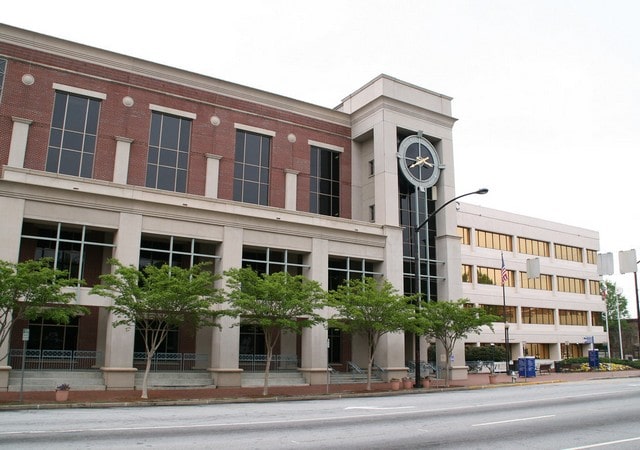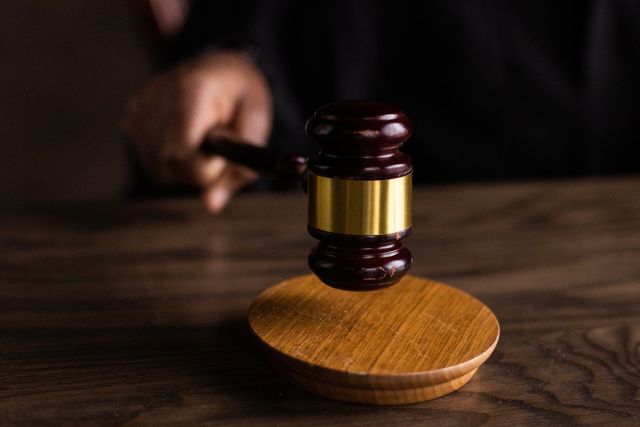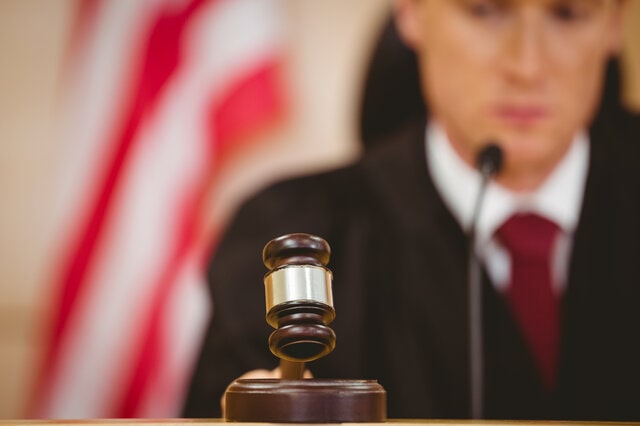A Brief Guide to the Georgia State Court System
Going to court can be scary and you want to feel prepared, The office of ALJ presents this comprehensive guide to the Georgia State Court. Call now for support.
What Is a State Court in Georgia?
State courts in Georgia were established in 1970 to hear limited cases within each Georgia county. Each state court decides cases based on Georgia state law and serves as a trial court in civil and criminal cases for the county.
Because of their unique characteristics as county trial courts, state courts are closest to the citizens. They are deeply involved in formulating policies, rules, and practices to improve the quality of justice delivered at the county level and, by extension, the entire state of Georgia. As such, most cases heard in the court are finally resolved there. Only a few cases decided in state courts are appealed to a higher court.
So if you’re facing criminal charges in Georgia or need to file a civil suit, there’s a good chance your case would be heard in your county state court. So, it is essential that you understand how a state court works, the cases they can hear, and other details about their processes.
Keep reading to learn more.

Cases Handled By Georgia State Courts
State courts can hear both civil and criminal cases. They can also hear civil appeals from magistrate courts. However, their trial jurisdiction is limited in the following manner:
Civil Cases
State courts can hear a wide variety of civil cases without being constrained by monetary limits. This means that the amount claimed in a suit, no matter how large, does not strip a state court of the right to hear the case as long as the subject matter falls within its jurisdiction.

However, the court cannot hear cases that fall within the jurisdiction of the superior courts. Cases that can’t be tried in a state court include the following:
- Contractual disputes
- Divorce
- Title to real property
- Premises liability
Criminal Cases
Again, the criminal jurisdiction of a state court is limited by that of the superior courts. They can only hear criminal cases the superior court has no jurisdiction to hear. For instance, felony offenses such as a murder charge can only be tried at the superior court.
The state court’s jurisdiction is thus limited to misdemeanors such as traffic violations, search and arrest warrants issuance and other preliminary hearings in criminal cases.
Sometimes it may be challenging to determine which court has the jurisdiction to decide what. If you’re involved in a criminal or civil case, and unsure which court has the power to hear your case, you can consult an attorney in your county to clarify the issue.
How to Locate a Georgia State Court
The location of state courts in Georgia varies with each county.
If you’re in Columbus, or your case is coming up there, you can find the state court at 100 10th Street, Government Center, Columbus, Georgia, 31901.
The court is open from Monday to Friday, between 8 AM and 5 PM. You can also call the court at (706) 653-4000 if you have questions.
If you’re elsewhere in Georgia, you might be able to find out the location of the state court in your county from your county’s official website or consult an attorney in your location.

Georgia State Court Judges
Each State court in Georgia is presided over by two judges. The judges are selected by a non-partisan election that holds across each county to serve a term of four years. But in some cases, the governor may appoint a Judge without an election to fill a vacancy.
To qualify for the state court bench, each candidate must meet specific qualifications, including the following:
-
They have to be at least 25 years old
-
They must have been admitted to practice law for at least seven years
-
They must have lived in the state for a minimum of three years.
The Council of State Court Judges supports state court judges as they discharge their duties. The council’s role includes setting policies that help state court judges dispense justice fairly to enhance public confidence in the courts and the justice system. The council also offers mentorship for new judges to help them adjust to the system.

How to Find Your Case Information in a Georgia State Court
If your case is pending in a state court, and you’d like to find out information such as the next court date, you’ll need to contact the specific courthouse where the case is heard.
Many state courts make such information readily available to litigants by providing access via online portals. You can do a Google search to locate your court’s website and confirm if they offer this option.
Alternatively, contact the county clerk’s office or an attorney to get the necessary information.

How to Access Georgia State Court Records
The first step in obtaining court records in a Georgia State court is locating the county where the case was filed or heard. Once this is done, you can apply to the court to view or obtain copies of the records depending on the specific court’s policy.
You can apply in person to the courthouse where the case was held. You could also apply for the records through the Judicial Council of Georgia’s E-Access to Court Records page. The page links state and superior courts’ websites across Georgia counties. You can click the link for your specific court and follow the text prompts from there.
Note that if you’re not a party to the case for which you seek court records, you might be unable to access some kinds of information. This is because some court proceedings, such as cases involving minors, are not available to the public. You can contact an attorney for more details on this.

How a Lawyer Can Help
Navigating the state court system in Georgia could be challenging, considering how they are spread across counties. If you have a pending case there, it would be easier to have a lawyer represent you throughout the case.
Your attorney can protect your rights, especially in a criminal trial, defend you before the judge and jury and work to ensure you get the desired outcome.
Contact us at the Office of ALJ for further information about dealing with Georgia state court cases. Our lawyers are familiar with Georgia’s state court practice and procedure, especially around the Columbus area.
So if you’re dealing with any other misdemeanor case, or you are asking yourself, “how can a DUI lawyer in Columbus, GA” help you, call us. We’d be glad to work with you!
Our felony criminal defense attorneys can also represent you if you’re dealing with felony charges in a superior court. Get in touch with us to set an appointment and speak with a skilled drug defense lawyer.


Send Message

REVIEWS
What our clients say

C.R.

T.S.







